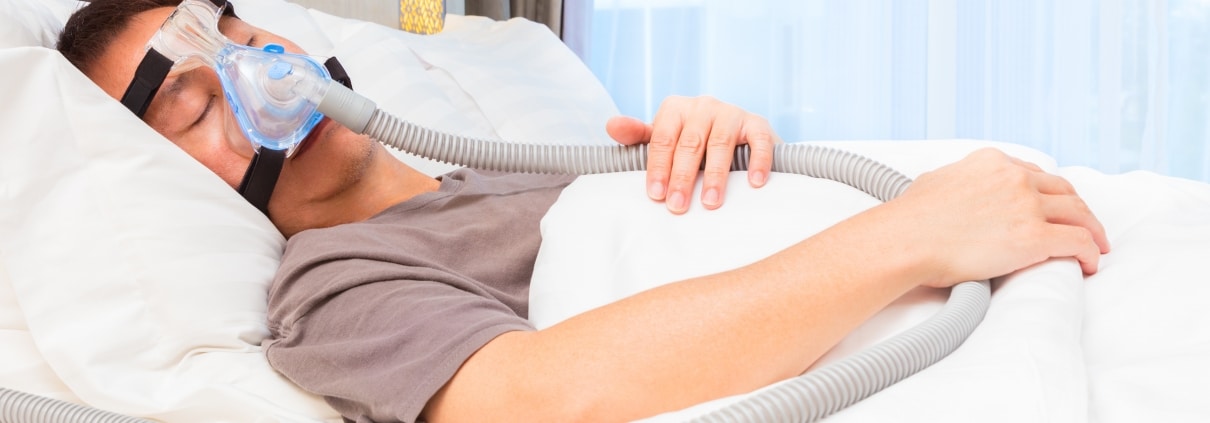What is Sleep Apnea?
The muscles in the throat allow us to speak, swallow and breathe. As we sleep, these throat muscles become less active and they relax, which causes a narrowing of the throat. For most people, this narrowing will not affect their ability to breathe effortlessly, however, for some, breathing becomes more difficult as the chest muscles and diaphragm work harder to open the blocked airway, these individuals have a condition that is referred to as obstructive sleep apnea (OSA). When an individual has OSA, he or she stops breathing intermittently during sleep.
What Are the Symptoms of Sleep Apnea?
There are numerous symptoms associated with sleep apnea. Many of which directly affect an individual’s quality of life.
Sleep apnea symptoms in adults can include:
- Headaches, especially in the morning.
- Daytime sleepiness.
- A sore throat and/or a dry mouth upon waking.
- Difficulty concentrating/Memory problems.
- Depression.
- Snoring.
- Irritability.
- A decreased sex drive.
- Hypertension.
- Uneven heart rhythms (due to a decrease in the amount of oxygen reaching the heart).
- Waking suddenly choking or gasping for air.
- GERD – Gastrointestinal reflux disease.
Sleep apnea symptoms in children may include:
- Drooling/Choking during sleep.
- Behavior and/or learning problems.
- The child’s rib cage moves inward instead of out as he or she exhales.
- Snoring.
- Sleepiness or sluggishness, which is typically seen as the child just being ‘lazy.’
- Teeth grinding.
- Breathing that stops during sleep.
- Odd sleeping positions (e.g., sleeping with the head bent very far back).
Causes of Sleep Apnea
Although obstructive sleep apnea is frequently caused by the relaxed muscles in the throat, there are other issues that can cause this condition.
Other reasons obstructive sleep apnea develops include:
- Inflamed tonsils.
- Obesity.
- Heart failure.
- Endocrine disorders.
What Complications Are Associated with Sleep Apnea?
Sleep apnea can cause an individual to develop eye problems, including dry eye and/or glaucoma. In addition, cardiovascular problems are fairly common among individuals with sleep apnea (e.g. a heart attack, stroke, hypertension, etc.). Sleep apnea can also cause metabolic disorders, including type 2 diabetes.
How Does a Dentist Address Sleep Apnea?
Individuals who have mild sleep apnea may be able to use a dental appliance or an oral mandibular advancement device to help keep their airway open during sleep. These devices are designed to keep the tongue from blocking the airway by moving the patient’s lower jaw forward.
If you or your child are experiencing any of the symptoms associated with sleep apnea, you may need to have a sleep study done to determine if sleep apnea is causing the symptoms and, if it is, the severity of the sleep apnea. If the obstructive sleep apnea is minor, one of the dentists at Fishinger Dental may be able to help address the issue with a dental appliance or device. To learn more, contact Fishinger Dental today at (614) 771-6060.
Fishinger Dental is located at 3560 Fishinger Boulevard in Hilliard, Ohio.









